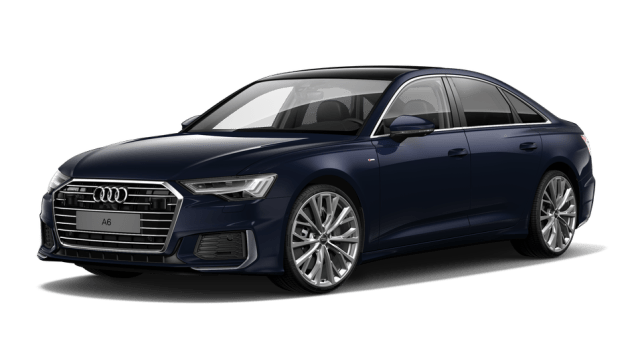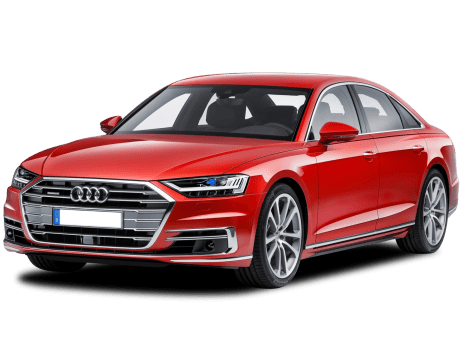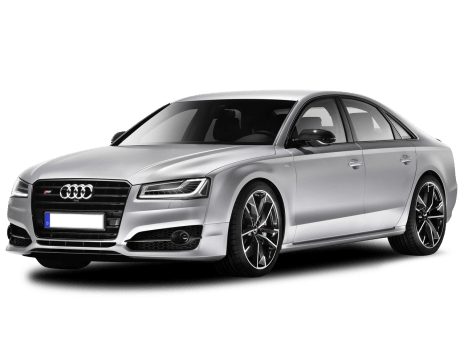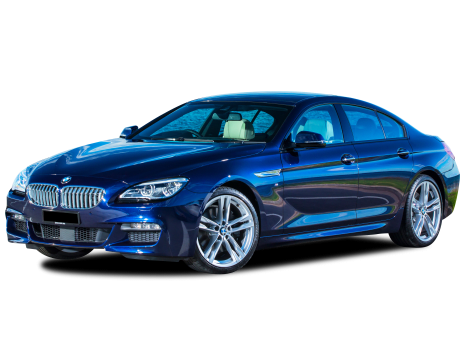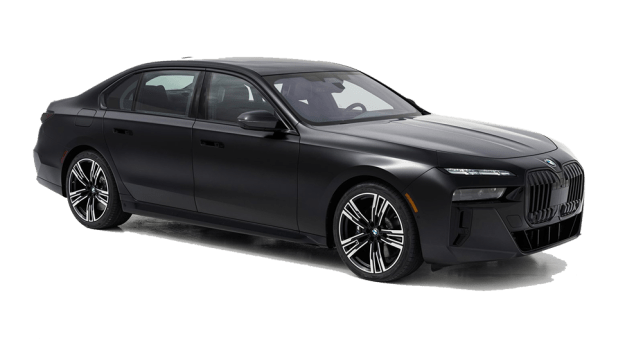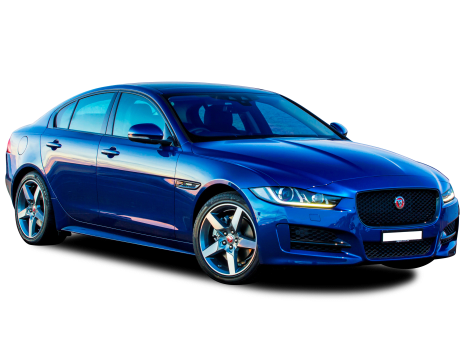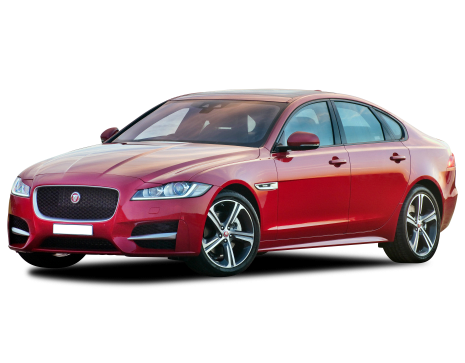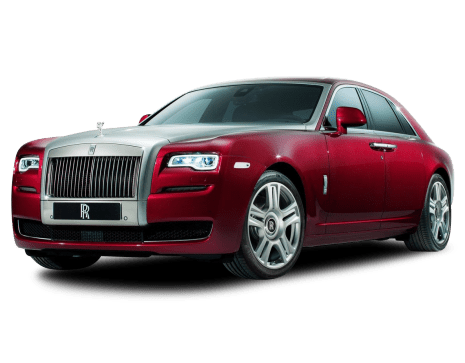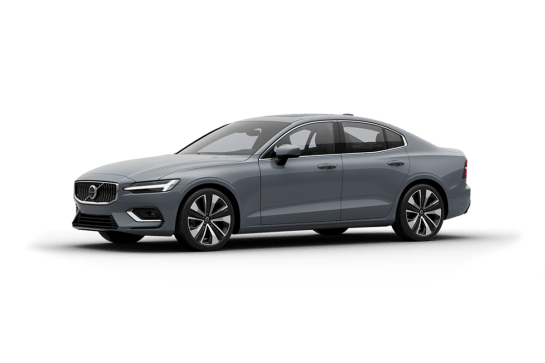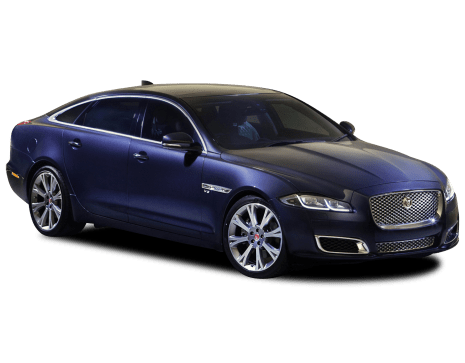
Jaguar XJ VS Audi S6
Jaguar XJ
Likes
- Characterful supercharged V8
- Agile handling with great ride
- Individual looks
Dislikes
- Options pricing
- InControl software a bit ordinary
- Too much in-cabin chrome
Audi S6
Likes
- Executive style
- Improved value
- Boy-racer performance
Dislikes
- Not SUV practical
- A touch thirsty
- Substandard warranty
Summary
Jaguar XJ
As a child, my parents - who aren't car people - would see a Jaguar and point. It didn't matter if it was an XJ, Daimler Double Six or a Mark II, there was a great deal of mystique around these bastions of Britishness. It also didn't matter that these weren't necessarily good cars. The Seventies and Eighties saw the brand slide into a funk while being passed between owners like hot potatoes.
Somehow, the brand survived its brush with Ford's useless Premier Automotive Group strategy which only came good towards the end as Jaguar's management woke up and put in place a change in direction that produced the Ian Callum-designed XF. Riding high on that design, Jaguar then promptly introduced the very pretty Jaguar XJ.
It has been on sale for ages, but with the addition of a few bits and bobs to stay competitive, it's as compelling as ever. Most importantly, the performance-focused R has kept its unique supercharged V8.
| Safety rating | |
|---|---|
| Engine Type | 5.0L |
| Fuel Type | Premium Unleaded Petrol |
| Fuel Efficiency | 11.6L/100km |
| Seating | 5 seats |
Audi S6
Most buyers don’t care for sedans these days, but those in the premium market are still spoilt for choice, with new model after new model being launched.
The latest on offer is the new Audi S6, which once again attempts to mix executive style with boy-racer performance.
With its predecessor’s 4.0-litre twin-turbo V8 succeeded by an engine that is 1.1 litres and two cylinders short, does it still serve up enough bang for your back?
Of course, the only way to find out is to put the new S6 sedan to test, so that’s exactly what we did. Read on.
| Safety rating | |
|---|---|
| Engine Type | 2.9L turbo |
| Fuel Type | Hybrid with Premium Unleaded |
| Fuel Efficiency | 8.4L/100km |
| Seating | 5 seats |
Verdict
Jaguar XJ7.5/10
It might be old and facing German competition bursting with advanced technology, but the XJR is still a car you can buy with heart and head. But mostly your heart. It goes like stink, has a much better interior than the Quattroporte and is more interesting than just about anything this big or this grand.
It's also a better car than the Maserati Quattroporte if you want to get on with the driving yourself and is far prettier than the Porsche Panamera. It's a wonderful thing and even more wonderful that Jaguar continues to build it. Long live that supercharged V8 and the XJ is a great home for it.
Is the XJ your cup of Earl Grey or are you more interested in a Maserati espresso (sorry) or a Porsche stein (sorry, again)? Tell us what you think in the comments below.
Audi S68.4/10
We adore the new S6 sedan. It looks great, feels comfortable and goes like stink all at the same time. What’s not to like?
It also helps that it is relatively good value, safe and practical by large-sedan standards, so it’s a bit of a no-brainer.
But will buyers be quick to dismiss the new S6 sedan because it’s not a more practical SUV? Time will tell, but we hope not.
Does the new Audi S6 sedan represent the best mix of executive style and boy-racer performance? Tell us what you think in the comments below.
Design
Jaguar XJ8/10
The XJ has a marvellously exaggerated length, with a rear overhang redolent of Jag's sporting coupe and roadster pair of the time of its launch, the XK. There's nothing else in the segment like it, with the three Germans - Mercedes' S-Class, Audi's A8 and BMW's 7 Series - having gone all Hugo Boss and and in the latter two's case, almost shrinking violet. The only credible Japanese alternative, the Lexus LS, looks like a Lexused 7 Series. The XJR is a more emotional car, like Maserati's Quattroporte.
The R adds an aggro grille, 20-inch wheels with low-ish profile tyres, a bootlid spoiler, red brake calipers and vents in the bonnet. Bits and pieces get the black gloss treatment and there are V8 and R badges, as well as a rather large leaper on the bootlid. Capping it all off are four exhausts poking out from the bumper and distinctive vertical taillights.
Inside remains largely unchanged. The cabin is big and luxurious, leather-lined and very, very comfortable. The front air vents have to be modelled on the de Havilland Comet's integrated jet engine intakes and, again, the dash design stays away from the horizontal lines of its obvious competition.
There is probably a bit much chrome for my liking, particularly on the centre console and around the rotary dial shifter, which reflects sunlight into your face during the day.
The lovely 'Riva Hoop' - a band that sweeps from door to door across the top of the dash - is a great touch and remains a defining feature in the cabin. The last update brought an Audi-like digital dashboard, including maps, but it's not nearly as slick as the German. The graphics for the dials are good (and quick) but the maps are a bit so-so.
Audi S69/10
To these eyes, the new S6 sedan is very attractive, albeit not outlandish, in keeping with its executive focus.
Up front, the subtly aggressive S body kit immediately comes into frame, with the bumper sporting sinister-looking side air intakes.
And, of course, there’s Audi’s signature Singleframe, which is not only large and in charge, but also finished in gloss-black, like many of the S6 sedan’s exterior design elements.
Below the heavily creased bonnet, the HD Matrix LED headlights look both angry and sophisticated, with their integrated LED daytime running lights (DRLs) providing a crisp signature.
Around the side, the S6 sedan goes about its business quietly, but its blistered wheelarches do add some bulk and help to accentuate its strong shoulder line.
And then there are the thick skirts and 21-inch alloy wheels (with a space-saver spare), which have a sporty twin five-spoke design. It’s all very classy.
Speaking of which, the rear end is arguably the S6 sedan’s best angle thanks to its wicked LED tail-lights, which have a segmented signature.
The chunky bumper below incorporates a diffuser element that houses the quad exhaust tailpipes, while a blink-and-you’ll-miss-it bootlid spoiler rounds out the look.
Inside, the S6 sedan is a technological tour de force, with 10.1- and 8.6-inch touchscreens dominating its centre stack. The former is responsible for most of Audi’s latest multimedia system’s functions, while the latter takes care of the climate controls.
This set-up works pretty well, although a few too many taps are required for certain functions, and then there’s the issue of the glass display coverings, which are absolute fingerprint magnets alongside the gloss-black accents used throughout.
That said, the 12.3-inch digital instrument cluster and windshield-projected head-up display on hand are brilliant. In fact, they set the standard for the entire industry thanks to their design and breadth of functionality.
The S6 sedan does, of course, feel a little bit more special than the regular A6 inside, with the obvious additions being the front sports seats, which are covered in supple Valcona leather alongside the armrests. They even have diamond-stitched inserts.
Then there’s the obligatory flat-bottom steering wheel (with paddle-shifters), which is trimmed in Nappa leather alongside the gear selector, upper dashboard, door shoulders and knee rests. Indeed, hard plastics are hard to find here.
Meanwhile, a black headliner adds to the sportiness alongside the black Alcantara door inserts, but the cabin is otherwise a familiar (read: classy) affair.
Practicality
Jaguar XJ7/10
It might be over five metres long, but the Jag's cabin isn't as gigantic as that might suggest - luckily, if you want space, the XJ L has it. The SWB version is roomy enough, though, just not palatial. You can fit five people, but the big transmission tunnel will limit the size of that fifth.
Front and rear passengers have a pair of cupholders each, with rubber bubbles to help hold smaller cups in tight. The front and rear doors have pockets but aren't really for bottles.
Boot space is a reasonable 520 litres, with a space saver spare under the floor.
Audi S68/10
Measuring 4954mm long, 1886mm wide and 1446mm tall, the new S6 sedan is a large sedan in every sense of the term, which is mostly good news when it comes to practicality.
Cargo capacity is decent, at 520L, but can be increased to an undisclosed amount with the 40/20/40 split-fold rear bench stowed.
Speaking of the boot, there are four tie-down points and a cargo net to help secure loose loads, while a bag hook and a side storage net are also on hand, alongside a 12V power outlet. Bulkier items will, however, be confronted by a decent load lip.
In-cabin storage options are numerous, but not all are effective. The glovebox is well-sized, while the driver-side cubby is surprisingly large, but the central bin is shallow, mostly taken up by the wireless smartphone charger, two USB-A ports and the SD and SIM card readers.
A pair of cupholders is located in the centre console, with a 12V power outlet found in between, while the front door bins can accommodate one regular bottle each, just like their rear counterparts.
In the second row, there’s a fold-down armrest with two more cupholders as well as a shallow storage tray, while cargo nets are affixed to the front seat backrests.
The rear bench is pretty comfortable, with four inches of legroom available behind my 184cm driving position alongside decent toe-room. Headroom is also good, with about two inches on offer.
That said, three adults sitting abreast won’t enjoy the experience, due to the large transmission tunnel, which makes for limited footwell space. At least they’ll have access to a couple of USB-A ports and a 12V power outlet, below the central air vents.
For reference, child seats can be fitted to the outboard seats via top-tether and ISOFIX anchorage points.
Price and features
Jaguar XJ7/10
As is expected at this level, Jaguar was not mucking about with price or specification - the XJR starts at a mildly terrifying $299,995, which is very close to the rather more tranquil Autobiography long-wheelbase relax-o-mobile.
Standard are 20-inch alloys, a 20-speaker stereo, power everything with three memory positions, four-zone climate control, keyless entry and start, front and rear parking sensors, heated and cooled front and rear seats, sat nav, LED headlights and DRLs, leather everywhere, auto wipers and (LED) headlights, electric boot lid, heated steering wheel and a space saver spare.
The Meridian-branded stereo is an absolute cracker, powered by the improved but still laggy 'InControl Pro' system. Oddly, it's all crammed into an 8.0-inch touchscreen when there is seemingly room for the larger (and better-performing) 10.0-inch screen. The software is far superior than the version that preceded the last update, but the screen is hard to use, as targets are placed right in the corners and are hard to hit.
Apple CarPlay and Android Auto are also absent, and the sat nav is still fairly dopey.
A long list of options are available, some of which should probably be included in the big sticker price - DAB+ ($620), premium paint is a splutter-worthy $2060 (although, to be fair, the vast majority of the 19 colours are free), adaptive cruise with queue assist ($2200), adaptive headlights a further $2620 and 'Parking Assist', which adds side sensors and a front camera, a further $2780. Reverse cross traffic alert, blind spot monitoring and forward collision warning cost yet another $1460. Ouch.
Audi S69/10
The new S6 large sedan is priced from $149,900 plus on-road costs and is far better value than before, even if it does command a $33,900 premium over the regular A6's flagship variant.
Compared to its predecessor, the new S6 sedan is $21,480 cheaper, while Audi Australia claims it has also added $20,000 worth of kit.
Standard equipment not already mentioned includes metallic paintwork (our test vehicle was finished in Tango Red), dusk-sensing lights, rain-sensing windshield wipers, soft-close doors, auto-folding side mirrors with heating, rear privacy glass and a hands-free power-operated bootlid.
Inside, satellite navigation with live traffic, Android Auto and wireless Apple CarPlay support, digital radio, a 705W Bang & Olufsen 3D sound system with 16 speakers, a panoramic sunroof, keyless entry and start, power-adjustable front seats with heating, a power-adjustable steering column, four-zone climate control, an auto-dimming rearview mirror and LED ambient lighting feature.
Of note, buyers can opt for the $7700 Dynamic Package that bundles in speed-sensitive electric power steering, a rear limited-slip differential and all-wheel steering. It was not fitted to our test vehicle.
In terms of rivals, the BMW M550i sedan is identically priced, while the Mercedes-AMG E53 sedan is much more expensive, at $173,800. The S6 sedan arguably has the former beat on value but loses the performance battle due to its 390kW/750Nm 4.4-litre twin-turbo V8.
Under the bonnet
Jaguar XJ9/10
Jaguar's lovely 5.0-litre V8 with supercharger continues under the XJ's long and shapely bonnet, delivering a walloping 404kW and a tyre-shredding 680Nm. The sprint to 100km/h for all 1875kg of XJR is completed in an impressive 4.6 seconds, which was very competitive at the car's launch in 2009.
Power reaches the rear wheels via ZF's eight-speed automatic and you can control it with the tacky plastic paddles on the steering wheel. Oh, and it has stop-start.
Audi S69/10
The new S6 sedan is powered by a hard-hitting 2.9-litre twin-turbo V6 petrol engine that produces a strong 331kW of power from 5700-6700rpm and a punchy 600Nm of torque from 1900-5000rpm.
Compared to its aforementioned predecessor, power is unchanged, while torque has increased by 50Nm.
This unit is mated to a 48V mild-hybrid system that includes a trick Electric-Powered Compressor (EPC), which helps to reduce its turbo lag.
A reliable eight-speed torque-converter automatic transmission is responsible for swapping gears, while drive is sent to all four wheels via Audi’s rear-biased quattro system.
This combination helps it sprint from a standstill to 100km/h in an impressive 4.5 seconds, while its top speed is electronically limited to 250km/h.
Efficiency
Jaguar XJ6/10
The combined cycle figure for the V8 is listed at 11.1L/100km but fully expect to see the 16.1L/100km we got, especially as you try and fail to tyre of the monstrous power delivery and lovely (if muted) V8 roar.
Luckily, even if you're belting it, the 82 litre tank is a generous size and you'll cover a fair amount of ground.
Audi S67/10
The new S6 sedan’s fuel consumption on the combined-cycle test (ADR 81/02) is 8.4 litres per 100 kilometres, while claimed carbon dioxide emissions are 197 grams per kilometre. Both figures are pretty keen given the level of performance on offer.
Audi says the aforementioned 48V mild-hybrid system reduces fuel consumption by 0.4L/100km thanks to its coasting ability, which sees the engine turn off for up to 40 seconds between 55km/h and 160km/h. It also engages idle-stop from 22km/h.
In our real-world testing, we averaged 14.4L/100km over 100km of driving skewed towards country roads over city traffic, with limited highway time. It’s worth noting that my spirited driving inflated this result. That said, while its fuel consumption is not as bad as it appears, this is still a thirsty sedan.
For reference, the S6 sedan’s 73L fuel tank takes 98RON petrol at minimum.
Driving
Jaguar XJ8/10
Indecently quick, surprisingly agile and heaps of fun. While the first descriptor applies purely because of its size, the next two shouldn't when you're in command of 5.13 metres of motor vehicle. As with the Audi and now the 7, the Jag has a lot of aluminium to help keep the kilos off and good gracious, it has worked.
The R is based around the short wheelbase version of the XJ for perhaps obvious reasons. Even so, it appears to be the shorter-again XF's because this thing turns in like a demon. No, it won't stay with the dearly-departed XF-R but it does a mighty fine impression of one, just with a better ride quality.
Rear seat passengers should be prepared to feel a lot of wheelslip, especially when in Dynamic mode, as even the fat Pirelli P-Zero's struggle for purchase when the right foot hits the carpet. The V8 rumbles rather than bellows, but the rears cheerfully spin up until the computers and active differential rein things in. Traction control off and you've got a proper tyre-smoker if you're not playing by the rules. Jag's engineers are clearly hooligans at heart.
As always, ZF's eight-speed transmission does an incredible job of marshalling the horses in a rearward direction and when you're not after a bit of sound and light, have achieved a tremendous amount with the damping. When in normal mode, the car glides along, so much so that the lady of the house wasn't so sure it was a sporting sedan.
Once she was apprised of dynamic mode (you have to cycle the button through winter mode first, for some reason), her only complaint was that it was too long and the steering wheel too big for this type of car. I was persuaded of the latter, especially after stepping out of an Audi S3 which has a tiny wheel. Long story short, the XJR is now 'her' car (to be more accurate, the XFR is, but that hasn't arrived yet, so...), as it felt smaller than it was when not parking and she's a sucker for a torquey V8.
Audi S69/10
The S6 sedan has no right being this good in a straight line and around corners…
Much of its success is owed to the 2.9-litre twin-turbo V6, which is now one of my favourite engines being built today. Simply put, it absolutely hammers.
Punch the accelerator from a standing start and it doesn’t take long for 600Nm to be on tap all the way through, and just a little bit beyond, the mid-range.
Occupants are firmly pressed into their seats as the S6 sedan sprints towards the horizon with vigour. Soon enough, 331kW arrives and hangs around until just prior to the redline.
Needless to say, this acceleration is addictive, and the EPC deserves some of the credit, as it effectively mitigates any dreaded turbo lag and ensures the engine is always seemingly on boost.
But we also need to acknowledge the eight-speed torque-converter automatic, which is a real beauty. Gear changes are nice and smooth, which is great, but what’s even better is their relative quickness – dual-clutch transmissions be damned!
Of course, extra performance can be extracted by switching between the engine and transmissions’ settings but, rest assured, they both stand up, no matter what.
However, we’d suggest spending time in the former’s most aggressive setting, as it unleashes the sports exhaust system, which sounds unreal.
Upshift with intent and you’re met with a booming ‘brap’. Downshifts and the overrun will even gift you a series of pops. In fact, the S6 sedan soundtrack sounds strangely similar to that of the five-cylinder RS3, and we have absolutely no problem with that.
Better yet, the S6 sedan has an appetite for corners, with its neutral handling a standout, partly thanks to its hard-working rear-biased quattro all-wheel-drive system, which works in tandem with all the other electronics to ensure there is plenty of grip at any given time.
This controlled driving pleasure is enhanced by the electric power steering on hand, which has a variable ratio. At low speed, it’s nice and light, but those after more heft can always switch to another one of its settings, which become progressively heavier… arguably too heavy.
Feedback through the wheel is also good, while the steering itself is pretty direct, lending itself to sporty driving, which, of course, is half of the S6 sedan’s mantra.
Coming into corners, braking performance is solid, thanks to the massive 400mm front and 350mm rear discs with red callipers, so the driver is brimming with confidence at every turn, even though there’s an unladen weight (with 75kg driver and luggage) of 1985kg to manage.
But let’s not forget the S6 is an executive sedan, so it has to ride like one. Thankfully, it does. The independent five-link suspension has air springs and adaptive dampers, which serve up comfort in spades, especially at high speed.
Its firm tune does come into frame when travelling on unsealed or uneven roads, with this exacerbated by the large 21-inch alloy wheels, which have a penchant for catching sharp edges.
Safety
Jaguar XJ7/10
The whole XJ range has six airbags, ABS, stability and traction controls, emergency brake assist, reversing camera, three top tethers and two ISOFIX points. The XJ doesn't have an ANCAP safety rating.
Audi S69/10
ANCAP awarded the A6 range (including S6) a maximum five-star safety rating in 2018.
Advanced driver-assist systems extend to autonomous emergency braking with pedestrian detection, lane-keep and steering assist, blind-spot monitoring, rear cross-traffic alert, adaptive cruise control with stop-and-go functionality, high-beam assist, driver attention alert, hill-start assist, tyre pressure monitoring, surround-view cameras and front and rear parking sensors. Yep, buyers aren’t left wanting here.
Other standard safety equipment includes six airbags (dual front, side and curtain), electronic stability and traction control systems, anti-skid brakes (ABS), brake assist and electronic brake-force distribution, among others.
Ownership
Jaguar XJ8/10
Jaguar offers a three year/unlimited kilometre warranty and roadside assist for the same period.
Like the F-Type, XJ owners benefit from three years/100,000km free servicing.
Audi S67/10
The S6 sedan comes with Audi Australia’s three-year/unlimited-kilometre warranty, which falls short of the premium market’s relatively new five-year standard that was set by Genesis and followed by Mercedes-Benz.
Three years of roadside assistance is also bundled in, although this term can be extended up to nine years if the vehicle is serviced at an authorised dealership, which is great.
Speaking of which, service intervals are every 12 months or 15,000km, whichever comes first. Capped-price servicing plans are available, costing $2350 for three years/45,000km or $4110 for five years/75,000km. They’re pricey, but you weren’t expecting the opposite.




